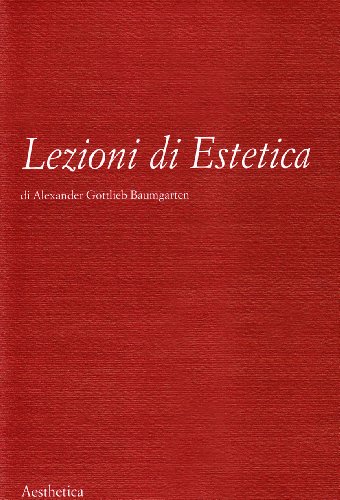

After his death, his pupils published a Philosophia Generalis (1770) and a Jus Naturae (1765), which he had left in manuscript.īaumgarten was particularly distinguished as having been the first to establish the Theory of the Beautiful as an independent science. 1763) Initia philosophiae practicae primae (1760). The principal works of Baumgarten are the following: Disputationes de nonnullis ad poema pertinentibus (1735) Aesthetica Metaphysica (1739 7th ed. He then studied at Halle.īaumgarten became professor of philosophy at Halle and at Frankfort on the Oder, where he died in 1762. His brother, Siegmund Jacob Baumgarten (1706 - 1757), was professor of theology at Halle, and applied the methods of Wolff to theology.īaumgarten was taught by Martin Georg Christgau where he learned Hebrew and became interested in Latin poetry. Baumgarten made a great contribution to the development of philosophical terminology he made wide use of the terms “subjective” and “objective,” “in itself” and “for itself,” the introduction of which has often been mistakenly attributed to Kant.Alexander Gottlieb Baumgarten was a German philosopher.Īlexander Gottlieb Baumgarten was born on Jat Berlin, Germany the son of the pietist pastor of the garrison, Jacob Baumgarten, and of his wife Rosina Elisabeth. The consideration of aesthetic phenomena from the point of view of the theory of knowledge, which was first done by Baumgarten, had a special importance for the subsequent development of German classical aesthetics. He maintained that the perfection or beauty of a phenomenon lies in the harmonious agreement of three basic elements-content, order, and expression.

The latter at the same time seemed to Baumgarten to be a theory of the beautiful inasmuch as the sensory, indistinct perception of perfection was connected by him with pleasure in the beautiful. In the field of gnoseology, following the German thinkers Leibniz and Wolff, he distinguished between higher (rational) knowledge-the subject of logic-and lower (sense-derived) knowledge, the theory of which Baumgarten was the first to call aesthetics. Originator of aesthetics as an independent philosophical discipline.īaumgarten was a professor at the University of Frankfurt an der Oder.

German philosopher belonging to the school of C. Born June 17, 1714, in Berlin died May 26, 1762, in Frankfurt an der Oder.


 0 kommentar(er)
0 kommentar(er)
